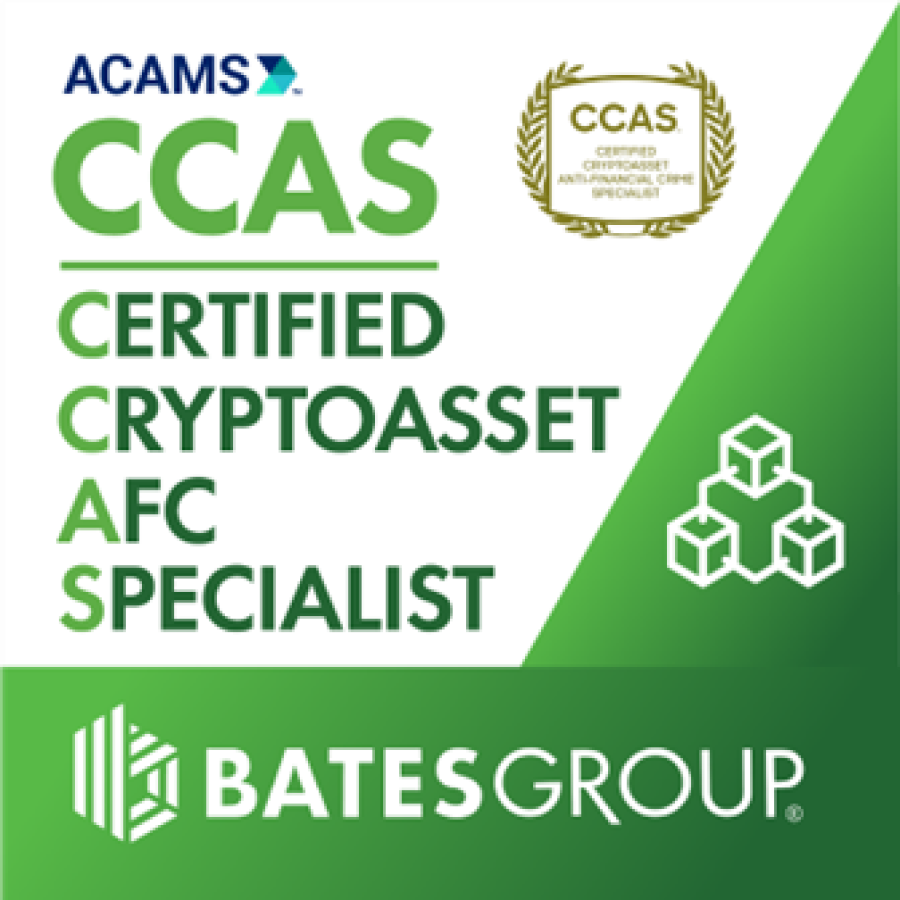Bates News | 01-24-23
New Cryptoasset Certification from ACAMS and Bates Group
We’re excited to share that Brandi Reynolds (Managing Director, Practice Lead) and John Ashley (Senior Consultant) of Bates' MSB, FinTech and Crypto team (pictured below) have combined their expertise with other AML, cryptoasset and law enforcement professionals to create an innovative new certification for financial crimes in the crypto space. Introducing the “Certified Cryptoasset Anti-Financial Crime (AFC) Specialist" Certification (CCAS) from ACAMS.

With the CCAS certification, individuals and entire cryptoasset compliance functions can step up their game in financial crime prevention and demonstrate their abilities to manage risk and comply with regulations surrounding financial crime in the rapidly evolving crypto space.
CCAS is made up of three interactive ACAMS certification courses covering AML foundations, cryptoasset and blockchain, and risk management in the crypto space, and includes e-learning courses, an electronic study guide, flash cards, review questions, and a practice exam. There are even optional Live Online classes to help professionals prepare for the exam.
Interested in getting CCAS certified? Check out the course and sign up here:

Learn more about how we can help strengthen your cryptoasset AML and compliance program:
Bates assists firms and counsel throughout their legal, regulatory, compliance and AML matters. Our experienced staff and consultants offer a suite of AML and Compliance consulting services to established and start-up companies in banking, broker-dealer, RIA, Fintech, virtual assets/cryptocurrency, Money Services Businesses (MSBs), and Non-Banking Financial Institutions (NBFIs). Our MSB and AML Team supports clients with their BSA/AML/OFAC Program Development, Risk Management, Training, Advisory Services, and Independent Reviews. We also provide practical guidance for obtaining and maintaining money transmitter licenses, identifying state requirements, coordinating with state regulators, submitting state reports, identifying risk, detecting suspicious or unusual activity, and preventing exposure associated with money laundering and terrorist financing.